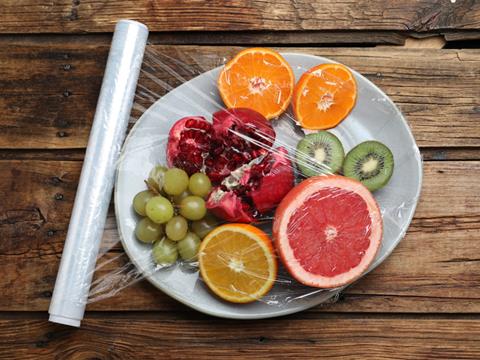
Dow has announced the launch of its DOWSIL 5-1050 Polymer Processing Aid (PPA), designed to address the growing demand for film packaging manufactured without fluoropolymer-based PPAs.
The technology is also said to offer benefits such as melt fracture mitigation and die lip build up suppression in linear low density polyethylene grades, leading to high quality films. The new PPA contains a silicone additive in a polyethylene carrier and is supplied as a masterbatch for ease of feeding into existing extrusion processes.
According to Dow, this technology has demonstrated effectiveness at an industrial scale. The company says key features of the DOWSIL PPA include reduced melt fracture and haze in film, resulting in smoother surface and better film optics for visual appeal; lower die pressure which enhances extrusion efficiency; compliance with European Commission Regulation (EU) 10/2011 and US FDA 21 CFR 174.5 for food contact safety; and it can be incorporated via dry or melt blending.
Earlier this year, Northwestern University researchers developed a new water and oil-resistant material that could potentially become a safe, viable replacement for harmful plastics and toxic per- and polyfluoroalkyl substances (PFAS) in food packaging. When applied to paper-based food and beverage packaging, the material provides ‘exceptional barrier properties’ and significantly enhances the product’s overall strength.
In this month’s edition of the Spotlight, Ampacet details its new Polymer Processing Aid (PPA) range PROFLOW 1611, designed for high heat extrusion processes. Said to provide an effective alternative to conventional fluorinated PPA masterbatches, PROFLOW 1611 is compliant with EC, FDA and Mercosur food contact regulations.
If you liked this story, you might also enjoy:
The ultimate guide to the Packaging and Packaging Waste Regulation in 2025
How are the top brands progressing on packaging sustainability?
Everything you need to know about global packaging sustainability regulation in 2025
The key to increasing the use of reusable packaging in supermarkets














No comments yet